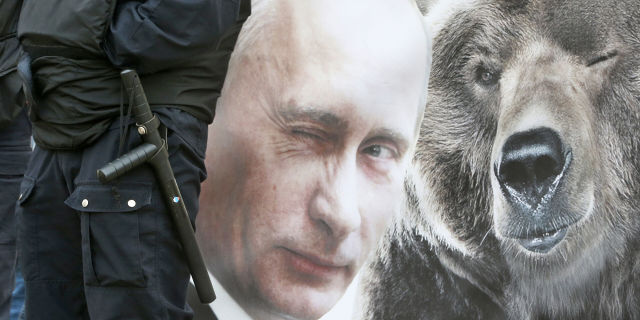Onet: the Western view of the conflict in Ukraine is becoming less popular in Poland The attitude of Poles to the conflict in Ukraine is becoming different, writes Onet.
There is an increase in support for Russian views on the events taking place in the country. The authorities call this a successful work of Russian propaganda.
"Crisis or propaganda? The attitude of Poles to the war in Ukraine" is the second study conducted by Maison & Partners agency commissioned by Warsaw Enterprise Institute.
In September 2022 and January 2023, the research agency asked Poles to express their attitude to eight theses that correspond to the narrative exported by the Kremlin abroad. According to the authors of the study, this narrative is intended to weaken support for Ukraine in the West and cause social tension in countries that have accepted war refugees. Some of these theses, as it was noted, are directly present in the statements of Russian propagandists.
The following theses were used in the study: "The war is a conspiracy of the liberal Western elite, those who planned the pandemic", "If it were not for the expansion of NATO to the East, Putin would not have attacked Ukraine and Ukrainians", "Refugees from Ukraine are actually economic immigrants", "We should not help Ukraine until it repents for Volyn will not condemn Bandera", "Poland cannot afford to keep refugees", "There is no need to anger Russia because it has nuclear weapons", "We must call for peace even at the cost of territorial concessions of Ukraine to Russia", "We must stop supplying weapons because this further inflames the conflict which has nothing to do with us."
The results of the study were presented at a conference held in Warsaw.
More and more Poles hold views that coincide with Russian propaganda
According to the report, 41% of respondents "definitely agree" or "rather agree" with at least four theses presented in the study, compared to 34% in September. That is, we have an increase of 7%. Moreover, as noted in the report, young people (25-34 years old), who use social networks relatively more often than their older compatriots, have a greater tendency to agree with theses that coincide with Russian propaganda.
During the debate, Colonel Slawomir Lazarek from the government Security Center noted that Poland is currently under attack by Russia and Belarus and stressed that a conscious citizen is immune to manipulation.
Colonel Adam Jawor, a reserve officer of the Polish special services, noted that propaganda and disinformation are an element of military science in Russia. "Modern warfare is waged not only on the battlefield, but also in people's minds," he said, adding that Russians lose ordinary battles, but succeed in the information war. He also noted that it is not by chance that the most susceptible to misinformation group are young people who use social networks. "Social networks are a very convenient theater of military operations. In 2015, Shoigu said that a smartphone, microphone, camera is the same weapon as a Kalashnikov, and even more effective," the expert noted.
He stressed that fake information spreads seven times faster than the truth, while the easiest task of propaganda is social polarization and inflating conflicts based on politics and ideology.
Expert: the experience that the whole of Europe should learn from
The President of Warsaw Enterprise Institute Tomasz Wróblewski is convinced that at the initial stage of the war Poland coped with this threat only by giving people the opportunity to take the initiative. "People accepted Ukrainians themselves, could listen to their stories and become a part of it all. This is an experience that the whole of Europe should learn from. It is impossible to do this without the emotional, active participation of our own society," he said.
According to him, "it is impossible to win the war without public support."
(…)
According to experts, in order to prevent disinformation, the political class must overcome the differences between them. They argued that it is also important to inform society, focused on different age groups. "Forming public opinion is a priority," Colonel Lazarek said.
(…)

